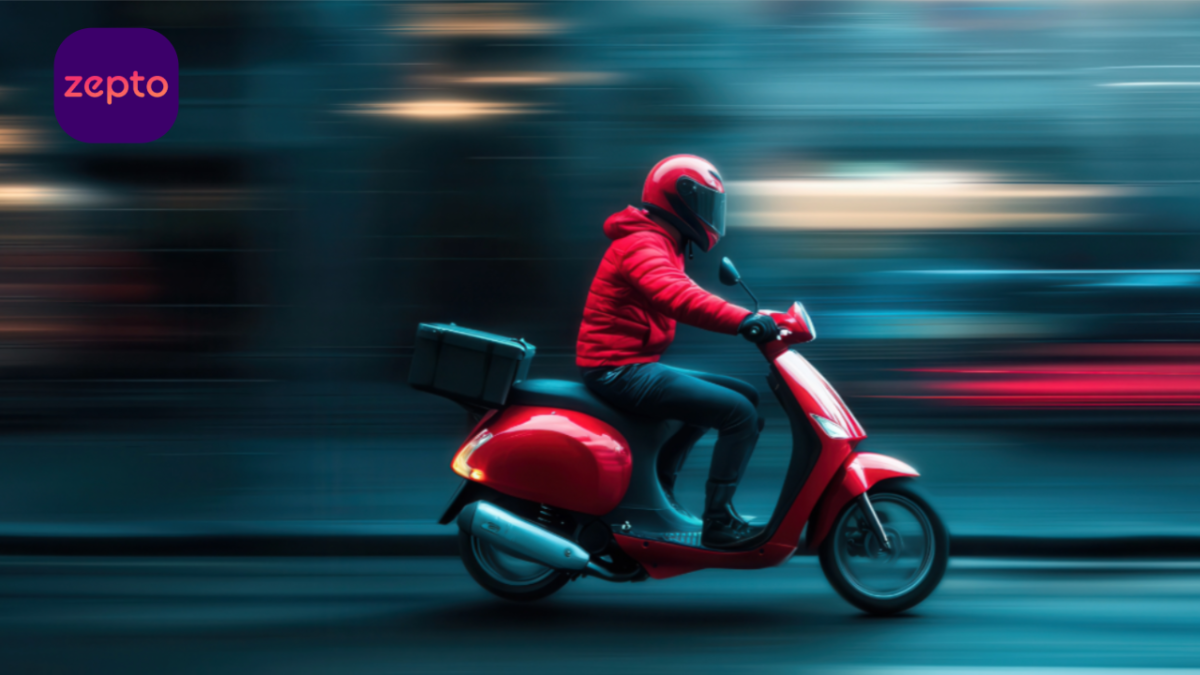Table of Contents
Introduction
The Indian e-commerce landscape has witnessed a major shift with the rise of instant delivery services. Among the front-runners in this space is Zepto, a Mumbai-based startup that has disrupted the online grocery delivery segment with its promise of 10-minute deliveries. Founded by two Stanford dropouts, Aadit Palicha and Kaivalya Vohra, Zepto has rapidly scaled its operations, redefining convenience for urban consumers. But what makes Zepto stand out in the crowded quick-commerce industry? Let’s dive deeper into its business model, growth, challenges, and future prospects.
The Business Model:

Zepto operates on a dark store model, ensuring hyperlocal fulfillment to achieve ultra-fast deliveries. Here’s how it works:
- Micro-warehouses (Dark Stores): Strategically placed across cities, these small warehouses store a curated selection of high-demand grocery items.
- AI-Driven Optimization: Advanced technology predicts demand and optimizes inventory to ensure that products are always in stock.
- Fleet Management: Zepto’s efficient delivery network, supported by real-time tracking, enables riders to fulfill orders within 10 minutes.
- Customer Convenience: The app-based platform offers an intuitive user experience, allowing customers to shop for daily essentials with minimal effort.
This model has enabled Zepto to cater to the growing need for speed and reliability in grocery shopping.
Rapid Growth and Market Penetration
Since its launch in 2021, Zepto has expanded to multiple Indian cities, including Mumbai, Delhi, Bengaluru, Chennai, and Hyderabad. Its aggressive approach has helped it compete with established players like Blinkit, Swiggy Instamart, and Dunzo. Some key milestones include:
- Funding & Valuation: Zepto has raised over $200 million, gaining a valuation of approximately $900 million as of 2023.
- User Adoption: The company has witnessed exponential user growth, with repeat orders forming a significant portion of its sales.
- Operational Efficiency: Zepto claims an industry-leading fulfillment rate of over 85%, significantly higher than traditional grocery delivery platforms.
Competitive Edge:
- Ultra-Fast Deliveries: Zepto’s biggest selling point is its promise of 10-minute deliveries, making it one of the fastest grocery delivery services in India.
- Smart Inventory Management: With AI-powered demand forecasting and strategic warehouse placement, Zepto ensures efficient stock management, minimizing wastage and maximizing availability.
- Hyperlocal Expansion Strategy: Zepto carefully selects high-demand urban locations, optimizing its reach and ensuring quick delivery coverage.
- Strong Customer Retention: With competitive pricing, a seamless app experience, and dependable deliveries, Zepto has built a loyal customer base.
You May Also Like: Burger Singh: The Indian Twist to Fast Food Success
Challenges and Roadblocks
Despite its rapid success, Zepto faces several challenges:
- High Operational Costs: Maintaining a network of dark stores and ensuring instant deliveries requires heavy investments in logistics and infrastructure.
- Regulatory and Legal Hurdles: The Indian government’s evolving regulations on quick-commerce and labor laws pose potential compliance risks.
- Intense Competition: With Blinkit (backed by Zomato), Swiggy Instamart, and Flipkart Minutes actively expanding, the competition in the quick-commerce sector is fierce.
- Profitability Concerns: While Zepto is experiencing fast growth, achieving long-term profitability remains a challenge due to thin margins and high customer acquisition costs.
Future Outlook
The company is set for continued expansion, aiming to enter new cities and broaden its product range. Key upcoming developments include:
- Geographical Expansion: Targeting Tier-2 and Tier-3 cities to tap into a broader consumer base.
- Diversification: Expanding product categories beyond groceries, including pharmaceuticals and household essentials.
- Technology Upgrades: Investing in AI, machine learning, and automation to further optimize logistics.
- Sustainability Initiatives: Reducing packaging waste and exploring eco-friendly delivery options.
Conclusion
India’s quick-commerce sector is evolving rapidly, driven by the increasing demand for ultra-fast grocery deliveries and seamless shopping experiences. One of the leading players in this space has leveraged technology-driven efficiency and strategic expansion to stay ahead. While challenges remain, its innovative approach positions it as a strong contender in the country’s e-commerce landscape. With continuous growth and a customer-centric focus, this company is set to redefine convenience and shape the future of instant grocery delivery.
Have you tried Zepto yet? Share your experience in the comments below!





